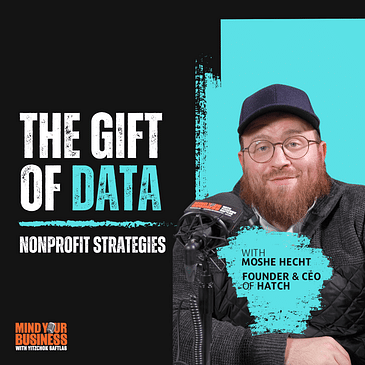Data is a gift. And if data is leveraged properly, it can lead to major gifts from donors in the non-profit space.
Meet Moshe Hecht, Founder & CEO of Hatch. Moshe built an incredible platform full of data, customized for each organization to login and build a human profile of their intended donor. Knowing your donor can lead to bigger gifts. Watch this powerful episode of Mind Your Business to learn how data is a gift, if used the right way.
Meet Moshe Hecht, Founder & CEO of Hatch. Moshe built an incredible platform full of data, customized for each organization to login and build a human profile of their intended donor. Knowing your donor can lead to bigger gifts. Watch this powerful episode of Mind Your Business to learn how data is a gift, if used the right way.




